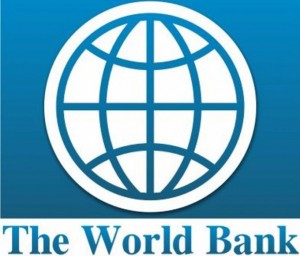Financial inclusion: Ghana is one of best in gender gap account ownership – World Bank
 Ghana’s gender gap in account ownership is one of the best in sub-Saharan Africa, according to a World Bank report.
Ghana’s gender gap in account ownership is one of the best in sub-Saharan Africa, according to a World Bank report.
At the rate of 8 per cent, it is slightly below the average for developing economies, making it one of the best in the sub-Saharan region.
This gender gap in financial inclusion, the Global Financial Index (Findex) report by the Bank says, can be bridged by technology. This is evident in how mobile money accounts are helping to narrow the gender and income gaps in account ownership in some countries.
For instance, in Côte d’Ivoire, men are twice as likely as women to have a bank account—yet women are just as likely as men to have a mobile money account only. Also, in Kenya and Zimbabwe, poorer adults are more likely than wealthier ones to have a mobile money account only.
The report put together by the World Bank Group says financial inclusion is on the rise across all regions of the world despite uneven growth in developing economies. It seeks to measure financial inclusion and the financial technology (FinTech) Revolution worldwide.
Financial technology is the new technology and innovation that aims to compete with traditional financial methods in the delivery of financial services. FinTech is a new industry that uses technology to improve activities in finance.
Since 2011, the Findex report noted that 1.2 billion adults own an account, including 515 million since 2014.
As of 2017, account ownership by adults stood at 69 per cent globally up from 51 per cent and 62 per cent in 2011 and 2014 respectively. Out of the 62 per cent account ownership in 2014, about 60 per cent owned only financial institution accounts, 1 per cent owned only mobile money accounts and another 1 per cent owned both financial institution accounts and mobile money accounts. The report however says, there is no data available on mobile money accounts for 2011.
The fraction of adults having accounts presently stands at about 90 per cent in high-income economies up from about 82 per cent in 2014. This figure, represents adults with only financial institution accounts, without mobile money accounts as the report doesn’t have any data for mobile money accounts in high-income earning economies.
In developing economies, account ownership in 2014 stood at 55 per cent, including 3 per cent of people with both financial institution accounts and mobile money as well as 1 per cent of people owning only mobile money accounts.
In line with the global phenomenon, the number of people with accounts has increased – account ownership by adults presently stands at 63 per cent with 4 per cent contribution from people with both financial institution accounts and mobile money and 2 per cent from people having only mobile money accounts.
This general rise in financial inclusion across the various regions of the world, the report says, is fueled by financial institution accounts and access to and use of financial services is driven by digital technology.
In sub-Sahara Africa, mobile money account ownership rose from 12 per cent to 21 per cent. Mobile money, the report said, spread from East Africa to West Africa and beyond, and plays an important part in some fragile and conflict affected economies.
In Ghana, account ownership is recorded to have doubled since 2011 (with 29 per cent owning accounts) with more than half of adults presently owning accounts. Out of 58 per cent of Ghanaians who own accounts currently, 39 per cent have mobile money accounts (24 per cent have both financial institution accounts and 15 per cent having only mobile money accounts).
However, in developing economies, this rise in financial inclusion is not even. Women in developing economies are less likely than men to have a bank account; resulting in a gender gap of 9 per cent since 2011. Averagely, there exists a gender gap of 9 per cent in developing economies when it comes to account ownership.
By Bismark Elorm Addo
Copyright ©2018 by Creative Imaginations Publicity
All rights reserved. This article or any portion thereof may not be reproduced or used in any manner whatsoever without the express written permission of the publisher except for the use of brief quotations in reviews.
